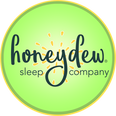Napping isn't just for kids; it's a powerful tool for adults too. Whether you're feeling sluggish or just need a quick recharge, a well-timed nap can do wonders for your energy levels and mental clarity. In this guide, we'll explore the benefits of napping and share some effective strategies to help you make the most of your rest time. By Honeydew Sleep
→ Try our best pillows for taking a nap and experiencing the ultimate comfort!
Why Napping is Beneficial
Napping offers a host of benefits that can improve your overall well-being. Here are some key advantages:
- Boosts Alertness: A short nap can help you feel more awake and alert. According to the National Sleep Foundation, a 20-minute nap is ideal for enhancing alertness and performance without causing grogginess.
- Improves Mood: Taking a nap can help improve your mood. A study published in the Journal of Sleep Research found that napping can lead to better emotional regulation and reduce feelings of frustration and irritability.
- Enhances Memory: Napping can improve memory and learning. Research shows that a nap can help consolidate memories and improve cognitive function, making it easier to retain new information.
- Increases Productivity: A quick nap can boost productivity by reducing fatigue and increasing focus. This is why many companies are now encouraging employees to take short naps during work hours.
Types of Naps
Not all naps are created equal. Here are the different types of naps and their benefits:
- Power Nap: Lasting 10-20 minutes, this nap is perfect for a quick boost in alertness and energy.
- Recovery Nap: If you're sleep-deprived, a longer nap of 30-60 minutes can help make up for lost sleep.
- REM Nap: Lasting 90 minutes, this nap allows you to complete a full sleep cycle, improving creativity and emotional memory.
Strategies for Effective Napping
To get the most out of your naps, consider these strategies:
- Timing is Key: The best time to nap is usually in the early afternoon, around 2-3 PM when your energy levels naturally dip.
- Create a Sleep-Friendly Environment: Make sure your nap space is quiet, dark, and comfortable. Consider using an eye mask or earplugs if necessary.
- Set an Alarm: To avoid oversleeping and feeling groggy, set an alarm to wake you up after your desired nap length.
- Limit Caffeine: Avoid caffeine before your nap, as it can interfere with your ability to fall asleep.
Napping and Sleep Disorders
While napping can be beneficial, it's important to consider how it affects your nighttime sleep. If you have insomnia or another sleep disorder, napping might make it harder to fall asleep at night. In such cases, it's best to limit naps or consult a sleep specialist.
Napping in Different Cultures
Napping is a common practice in many cultures around the world. For example, in Spain, the "siesta" is a traditional afternoon nap that helps people recharge during the hottest part of the day. In Japan, "inemuri" is a practice where people nap in public as a sign of dedication to their work.
Napping and Mental Health
Napping can have positive effects on mental health. It can reduce stress and anxiety, providing a mental reset during a busy day. However, excessive napping can sometimes be a sign of underlying mental health issues, such as depression. If you find yourself needing to nap frequently, it might be worth discussing with a healthcare professional.
Final Thoughts
Napping is a simple yet effective way to boost your energy, improve your mood, and enhance your cognitive function. By incorporating strategic naps into your routine, you can improve your overall well-being and productivity. Remember to keep your naps short and sweet, and enjoy the benefits of a well-rested mind and body.
Ready to enhance your sleep quality? Check out our Scrumptious Side Sleeper Pillow and The Classic Scrumptious Pillow with Cooling Organic Pillowcase for ultimate comfort and support.
For more tips on improving your sleep, Honeydew News, and explore our range of sleep products designed to help you rest better.






